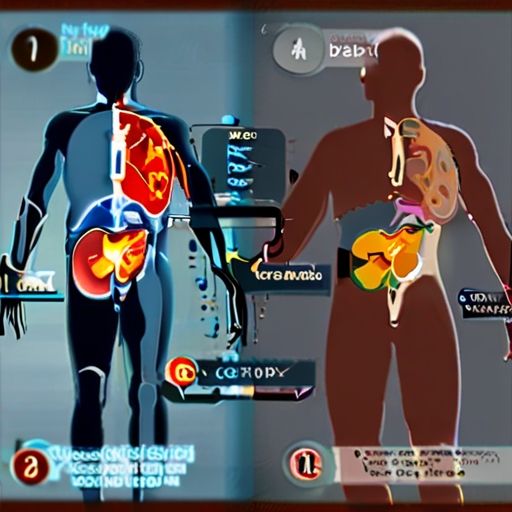Gastric cancer, also known as stomach cancer, is a serious and potentially life-threatening condition. Recognizing the signs and symptoms of gastric cancer is crucial for early detection and treatment. In this article, we will explore 9 common signs of gastric cancer that everyone should be aware of.

Unexplained Weight Loss
Sudden and unexplained weight loss is often a sign of various health issues, including gastric cancer. If you notice a significant and unintentional drop in your weight without changes in diet or exercise, it could be a warning sign of gastric cancer. This weight loss may be due to the tumor affecting the way your body absorbs nutrients.
Persistent Indigestion
While occasional indigestion is common, persistent or recurrent indigestion could indicate something more serious, such as gastric cancer. Symptoms of indigestion include bloating, nausea, and abdominal pain. If you experience ongoing indigestion that does not improve with over-the-counter medications, consult your healthcare provider.
Loss of Appetite
A sudden loss of appetite or feeling full even after eating small amounts of food can be a symptom of gastric cancer. This change in appetite could be due to the tumor affecting hormones that regulate hunger. If you notice a significant decrease in your appetite, especially if it persists over time, it's essential to see a doctor for further evaluation.
Abdominal Pain
Persistent or frequent abdominal pain, especially in the upper abdomen, may be a sign of gastric cancer. This pain can manifest as a dull ache or sharp stabbing sensation. If you experience ongoing abdominal pain that is not relieved by over-the-counter pain medications, it's important to seek medical attention promptly.
Feeling Bloated
Frequent bloating, particularly after meals, can be a symptom of gastric cancer. The tumor may obstruct part of the stomach, leading to a feeling of fullness and bloating even after consuming small amounts of food. If you notice persistent bloating along with other symptoms, it's crucial to consult a healthcare provider.
Black Stools
Passing black or tarry stools could indicate bleeding in the stomach or upper digestive tract, which may be a sign of gastric cancer. The dark color of the stool is due to the presence of blood that has been partially digested. If you notice black stools or any signs of gastrointestinal bleeding, seek medical attention immediately.
Vomiting
Frequent nausea and vomiting, especially if accompanied by blood or a coffee ground-like appearance, could be a symptom of advanced gastric cancer. The tumor may obstruct the passage of food from the stomach, leading to vomiting and regurgitation. If you experience persistent vomiting, it's important to see a healthcare provider for proper evaluation.
Fatigue
Persistent fatigue or weakness that does not improve with rest can be a sign of various underlying health issues, including gastric cancer. The tumor may cause internal bleeding, leading to low red blood cell count (anemia) and subsequent fatigue. If you experience unexplained fatigue along with other symptoms, seek medical advice promptly.
Difficulty Swallowing
Difficulty swallowing, also known as dysphagia, can occur in individuals with gastric cancer, especially as the tumor grows and obstructs the passage of food through the esophagus. If you have trouble swallowing, feel like food is getting stuck in your throat, or experience pain when swallowing, it's crucial to seek medical attention for further evaluation.